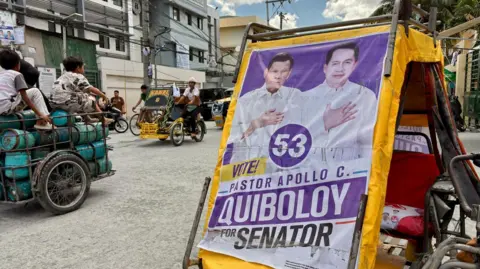Philippines Politics in 2025: Power Struggles, Dynasties, and Election Surprises

The political landscape of the Philippines has always been dynamic, but the most recent midterm elections in 2025 have sparked unprecedented debate and drama. With shifting alliances, high-stakes power struggles, and dynasties vying for influence, the country's future appears more unpredictable than ever.
A Dramatic Election Season Unfolds
This year’s midterm elections were marked by heated rivalries, intriguing legal debates, and the persistent clout of political families. Voters across the Philippines cast their ballots for over 18,000 positions, from local councils to the upper echelons of the Senate. The contest quickly became a battleground between the established Marcos and Duterte dynasties.
Former President Rodrigo Duterte, a towering figure in Philippine politics, made headlines when he secured a sweeping victory for mayor of Davao City—despite currently being behind bars at The Hague. Duterte faces trial at the International Criminal Court (ICC) for alleged crimes committed during his controversial war on drugs. Yet, his arrest might have only galvanized the support of his base, reaffirming his lasting influence in southern Philippines. For a detailed breakdown of Duterte’s complex legal and political situation, see this in-depth report by CNN.
Power Struggle: Marcos vs Duterte
At the same time, President Ferdinand "Bongbong" Marcos Jr.'s grip on the Senate has shown signs of weakening. Marcos had expected to dominate the upper house, but results indicate a far more balanced outcome. The race even marked a comeback for figures outside the two main dynasties. The highly watched Senate contest affects major decisions—especially the impeachment proceedings against Vice President Sara Duterte, who stands at the center of her own political storm. Read more about the shifting Senate landscape in this BBC News analysis, which explores the surprises and the historical context behind family rivalries.
What Happens Next With Duterte’s Mandate?
Even as Rodrigo Duterte’s family swept local races in Davao, legal experts remain divided on whether he can officially assume his post while detained overseas. Some suggest swearing in by proxy or video call might be possible, but it would need ICC approval. In the meantime, daily duties might fall to his son, Sebastian Duterte, who recently won the vice-mayor seat. Such a situation raises pressing questions about governance, legitimacy, and continued dynastic control in Philippine cities.
For a quick overview of winners, losers, and the implications of the election results nationwide, you may visit this Al Jazeera election summary.
The Enduring Power of Political Dynasties
Beyond high-level drama, the elections highlighted how political families continue to shape the destiny of the Philippines. In Davao and beyond, family names like Duterte, Marcos, and Aquino remain household fixtures. Voters, while showing some appetite for independent figures, still place trust in familiar dynastic leadership. As economists and political scientists observe, this persistence underscores both the traditions and the challenges within Philippine democracy.
Conclusion: Preparing for a New Chapter
The Philippines now stands at a turning point. Whether the country will see genuine reform or a continued tug-of-war among ruling elites depends on how these developments unfold. For citizens and observers alike, staying informed about political shifts remains essential.
As power, survival, and legacy continue to define political life in the Philippines, one thing is clear: the nation’s future will be shaped not only by its leaders but also by the resilience and choices of its people.